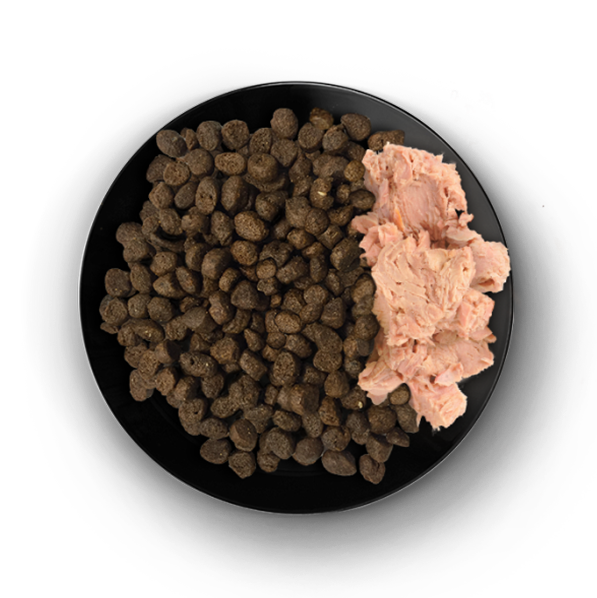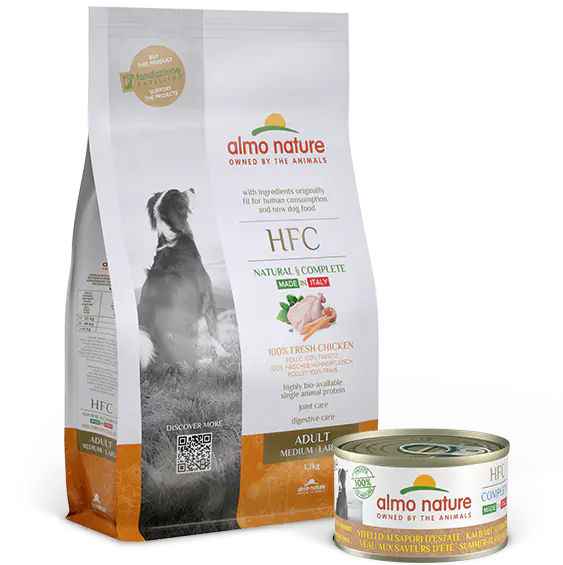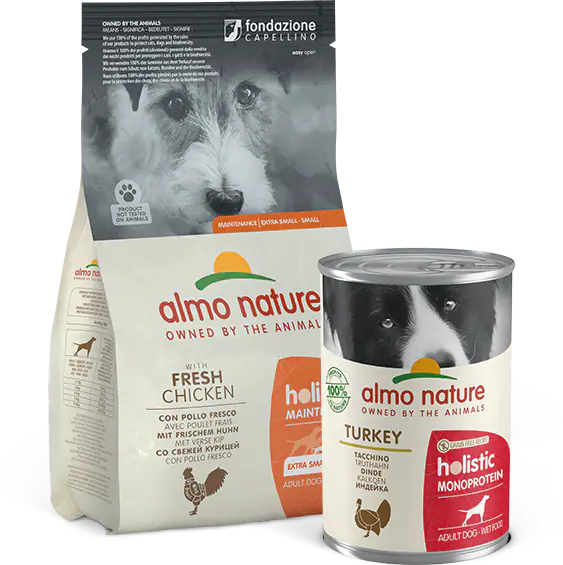Dog nutrition advice
Wet food or kibble food?
Feeding your dog
Dogs spontaneously drink plenty of water. High-quality and complete kibble is your dog's staple food.

Small breeds
Make sure kibble food is their main diet. To make their meal tastier, mix kibble with a small percentage of wet food; always consider offering the latter in the event of lack of appetite, recovery after surgery or to help keep your dog hydrated in summer.
Medium and large breeds
Feeding may consist exclusively of kibble, consider offering wet food in the event of lack of appetite, recovery after surgery or in summer, to help keep your dog hydrated.
For a more complete diet, different animal protein sources should be included: therefore, alternate between red meat, white meat and fish.
If the cause is loss of appetite, mix kibble food with wet food, up to a maximum of 20% of total weight.
If teeth or gums are the cause, moisten your dog's kibble with lukewarm water and add complete wet food up to 50% of total (in weight).
No, it is not! Never feed the entire daily ration in one meal. Instead, split it into two or three smaller meals.
The wet pet food can be given alone or mixed with the dry pet food.
A slow and gradual transition is necessary when the change is between 2 very different foods such as kibble food with dehydrated meat or fish or meat meals and kibble food with 100% fresh meat or fish.
To allow intestinal flora the time to adjust, over 7 days, gradually incorporate an increasing amount of the new kibble food into your pet's current diet, until you complete transition to 100%.
Digestibility!
The process of producing cold pressed dog kibble (pellets) calls for the use of ground ingredients, such as meat meal. In addition, "cooking" is only carried out at low temperatures, which greatly decreases the final digestibility of the product. Extruded kibble food, on the other hand, may contain fresh meat. All ingredients are cooked during extrusion, so that cereals or potato starch are pre-digested, thus increasing the final digestibility of the product. In addition, according to recent studies, cold-pressing provides no benefit to the gut microbiome.




-1.jpg)




